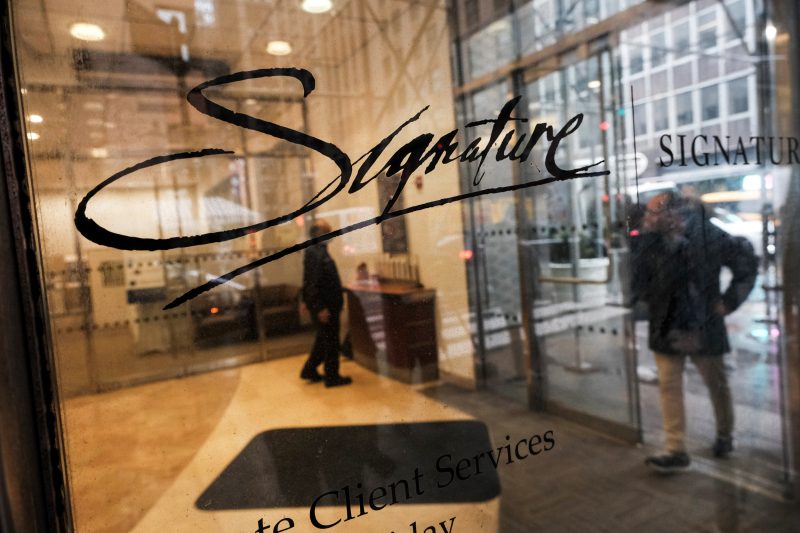On Friday, Signature Bank customers spooked by the sudden collapse of Silicon Valley Bank withdrew more than $10 billion in deposits, a board member told CNBC.
That run on deposits quickly led to the third-largest bank failure in U.S. history. Regulators announced late Sunday that Signature was being taken over to protect its depositors and the stability of the U.S. financial system.
The sudden move shocked executives of Signature Bank, a New York-based institution with deep ties to the real estate and legal industries, said board member and former U.S. Rep. Barney Frank. Signature had 40 branches, assets of $110.36 billion and deposits of $88.59 billion at the end of 2022, according to a regulatory filing.
“We had no indication of problems until we got a deposit run late Friday, which was purely contagion from SVB,” Frank told CNBC in a phone interview.
Problems for U.S. banks with exposure to the frothiest asset classes of the Covid pandemic — crypto and tech startups — boiled over last week with the wind down of crypto-centric Silvergate Bank. While that firm’s demise had been long expected, it helped ignite a panic about banks with high levels of uninsured deposits. Venture capital investors and founders drained their Silicon Valley Bank accounts Thursday, leading to its seizure by midday Friday.
Worries spread
That led to pressure on Signature, First Republic and other names late last week on fears that uninsured deposits could be locked up or lose value, either of which could be fatal to startups.
Signature Bank was founded in 2001 as a more business-friendly alternative to the big banks. It expanded to the West Coast and then opened itself to the crypto industry in 2018, which helped turbocharge deposit growth in recent years. The bank created a 24/7 payments network for crypto clients and had $16.5 billion in deposits from digital-asset-related customers.
But as waves of concern spread late last week, Signature customers moved deposits to bigger banks including JPMorgan Chase and Citigroup, Frank said.
According to Frank, Signature executives explored “all avenues” to shore up its situation, including finding more capital and gauging interest from potential acquirers. The deposit exodus had slowed by Sunday, he said, and executives believed they had stabilized the situation.
Instead, Signature’s top managers have been summarily removed and the bank was shuttered Sunday. Regulators are now conducting a sales process for the bank, while guaranteeing that customers will have access to deposits and service will continue uninterrupted.
Poster child
The move raised some eyebrows among observers. In the same Sunday announcement that identified SVB and Signature Bank as risks to financial stability, regulators announced new facilities to shore up confidence in the country’s other banks.
Another bank that had been under pressure in recent days, First Republic declared that it had more than $70 billion in untapped funding from the Federal Reserve and JPMorgan Chase.
For his part, Frank, who helped draft the landmark Dodd-Frank Act after the 2008 financial crisis, said there was “no real objective reason” that Signature had to be seized.
“I think part of what happened was that regulators wanted to send a very strong anti-crypto message,” Frank said. “We became the poster boy because there was no insolvency based on the fundamentals.”

